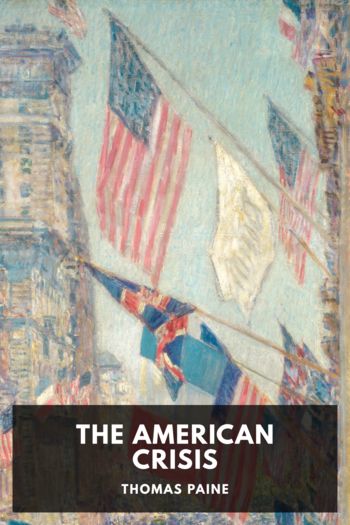Fateful Lightning: A New History of the Civil War & Reconstruction, Allen Guelzo [best thriller novels of all time txt] 📗

- Author: Allen Guelzo
Book online «Fateful Lightning: A New History of the Civil War & Reconstruction, Allen Guelzo [best thriller novels of all time txt] 📗». Author Allen Guelzo
As he passed out pardons on application, Johnson proceeded to appoint provisional governors for North Carolina on May 29, Mississippi on June 13, Georgia and Texas on June 17, Alabama on June 21, South Carolina on June 30, and Florida on July 11 (he also recognized as legitimate the Unionist state governments that had already been erected in Virginia, Louisiana, Arkansas, and his own Tennessee). Instead of being hanged, Confederate leaders were at first surprised by Johnson’s generosity, then relieved, and then defiant. None of the reconstructed governments extended voting rights to the freedmen; South Carolina even balked at repudiating its share of Confederate debt. Carl Schurz, on a fact-finding tour of the South, believed that the surrenders of the Confederate armies had made public opinion in the Southern states “so despondent that if readmission at some future time under whatever conditions had been promised, it would have been looked upon as a favor.” But when “day after day went by without bringing the disasters and inflictions which had been vaguely anticipated,” Southerners grew more secure and resistant, “until at last the appearance of [Johnson’s amnesty] proclamation substituted new hopes for them.” As soon as “they found that the control of everything was to be again put in their hands,” wrote one frantic observer to Lyman Trumbull, “they became insolent … drunk with power, ruling and abusing every loyal man, white and black.” Christopher Memminger put it more simply: Johnson “held up before us the hope of a ‘white man’s government,’ and this led us to set aside negro suffrage. … It was natural that we should yield to our old prejudices.”57
This overreach, however, was the undoing of presidential Reconstruction. Several southern conventions only repealed secession rather than repudiating it, the new state legislature in Mississippi refused to ratify the Thirteenth Amendment, and a few states ratified the amendment but only with the proviso that the states and not the federal government had the right to determine the political future of the freed-people. In Arkansas, the legislature actually appropriated funds to pay pensions to Confederate veterans. In a series of “Black Codes,” Mississippi and South Carolina passed labor laws that bound blacks to employers almost as tightly as slavery once bound them to masters. Other codes established patterns of racial segregation that had been impossible under slavery, barred African Americans from serving on juries or offering testimony in court against whites, made “vagrancy,” “insulting gestures,” and “mischief” offenses by blacks punishable by fines or imprisonment, forbade black-white intermarriage, and banned ownership by blacks of “fire-arms of any kind, or any ammunition, dirk or bowie-knife.”58
The most visibly outrageous result of presidential Reconstruction involved the people who found top-level state employment in the Johnson governments, and the representatives they sent to Washington to sit in Congress. Across the lower South, former Confederates moved right back into the places of state power they had held before the war. Alexander Stephens, former Confederate vice president and now pardoned by Johnson, was elected by the Georgia legislature to the Senate; Herschel V. Johnson, who had sat in the Confederate Congress, was picked for the other Georgia Senate seat. In the House of Representatives, Cullen Battle, until recently a Confederate general, showed up to represent Alabama; William T. Wofford, who had commanded a Confederate brigade at Gettysburg, was there for Georgia; two of Virginia’s eight representatives had been members of the state secession convention in 1861. Along with the restoration of white power came an upsurge of anti-black violence. “You have doubtless heard a great deal of the Reconstructed South, of their acceptance of the results of the war,” wrote a Freedmen’s Bureau agent in South Carolina. “This may all be true, but if a man … had the list of Negroes murdered in a single county in this most loyal and Christian state, he would think it a strange way of demonstrating his kindly feelings toward them.”59
When Congress finally reassembled in December 1865, the mutterings against presidential Reconstruction had become loud and irritated. The representatives of the new Johnson-approved governments appeared on December 4 to take their seats, but the clerk of the House of Representatives, Edward McPherson (whose property at Gettysburg had been fought over on July 1, 1863), omitted their names from the roll call and refused





Comments (0)